選択した画像 parent-child relationship inventory questionnaire 136812
The ChiPC is a clinically oriented questionnaire for assessing the quality of the childparent relationship according to the child's subjective appraisal The ChiPC is based on family systems theory and a cumulative vulnerability model The questionnaire consists of 36 items representing three resource scales, five risk scales, and oneRelationship 1 spouse 2 child 3 parent 4 other How often do the two of you Never 1 Seldom 2 Sometimes 3 Fairly often 4 This is a questionnaire to determine the attitudes and beliefs of different people on a variety of Inventory of Socially Supportive Behaviors, 1981The Parent Adolescent Relationship Questionnaire (PARQ) is a multidimensional selfreport inventory that examines the relationships between adolescents and parents The PARQ is based on Robin and Foster's (19) behavioral familysystems model that regards parent–adolescent conflict as a developmental phenomenon of families
Revision Sistematica De Medidas De Conducta Prosocial
Parent-child relationship inventory questionnaire
Parent-child relationship inventory questionnaire-CHILDPARENT RELATIONSHIP SCALE Scoring Guide Sum the items as noted;ParentChild relationship inventory Type Outcome measures &




Basc 3 Parenting Relationship Questionnaire Basc 3 Prq Pearson Assessment
Child Abuse Potential Inventory (CAP;Child Relationship Questionnaire (PACQ) the assessment of the relationship of adult children to their parents CPEISAH, 1 HBRODATY, 1,2 GThree measures, the Parent Stress Index, the Parent Child Relationship Inventory, and the Strengths and Difficulties Questionnaire, were used to
This has proven to be very gratifying, and I have now been at Children's Hospital for 30 years I also get to do some research, such as my work with the Parent Adolescent Relationship Questionnaire™ (PARQ™), and a great deal of teaching What made youStateTrait Anxiety Inventory for Children Author Charles D Speilberger (19) Purpose To measure anxiety in children Selfadministered questionnaire measures state and trait anxiety in elementary school children The AState scale has statements that ask children how they feel at a particular moment in time The ATrait scaleAdult children's ratings of their parents' behaviors on the ParentChild Relation Questionnaire II were correlated with selfreports and peer ratings of personality on the NEO Personality Inventory in a sample of 619 men and women aged 21 to 96, and several alternative explanations suggest that the correlations may exaggerate the influence of
Parent subscales Competence, Isolation, Attachment, Health, Role Restriction, Spouse/Parenting Partner Relationship Long form translation available in 28 languages Expanded norms organized by each year of child age Reliability and validity of the test supports that parenting stress is a measure that is useful across diverse populationsIn exploratory work, we asked adults on Amazon Mechanical Turk to endorse a set of propositions about parenting andThe parents were administered the Child Abuse Potential Inventory and the Parenting Stress Index during their first appointment for treatment services The Child Abuse Potential Inventory is a 160 item, forcedchoice screening questionnaire designed to discriminate between adult physical abusers and nonabusers




Pdf The Parent Caregiver Relationship Scale A Measure Of The Adult Relationship In Infant Child Care




Parent Child Relationship Inventory Pcri
Shaver's (1987) single item measure of adult attachment style Children are given three descriptions of feelings and perceptions about relationships with other children and are asked to choose the description that best fits them The measure classifies children according to one ofParenting behaviors and decisions play an important role in determining children's early environment Are these behaviors driven by an intuitive theory of parenting – a coherent set of beliefs about child development and parentchild relationships?This unique selfreport inventory tells you how parents view the task of parenting and how they feel about their children Designed for use with mothers or fathers of 3 to 15yearold children, the PCRI gives you a clear, quantified description of the parentchild relationship And it identifies specific areas in which problems may occur




Measuring Bonding Or Attachment In The Parent Infant Relationship A Systematic Review Of Parent Report Assessment Measures Their Psychometric Properties And Clinical Utility Sciencedirect



2
Of the parent–child relationship measures, the most commonly used measures were the PSI and the Child Abuse Potential Inventory Table 2 displays the parental practices and discipline measures These measures assess interactional patterns of behaviours, including harsh and inconsistent disciplineCPP Child Assessment Guide (v 9/) Please select one from each domain for the foundational phase C h i l d T r a u m a H i sto ry C h il d D eve lopme nta l F un ct ionin g ♪ T raumatic Events Screening Inventory Parent Report Revised ( T ESIPRR ) ;This unique selfreport inventory tells you how parents view the task of parenting and how they feel about their children Designed for use with mothers or fathers of 3 to 15yearold children, the PCRI gives you a clear, quantified description of the parentchild relationship And it identifies specific areas in which problems may occur




Parent Child Relationship Associated With The Development Of Borderline Personality Disorder A Systematic Review Boucher 17 Personality And Mental Health Wiley Online Library




Use Of A Parent Questionnaire In Emergent And Early Literacy Assessment Of Preschool Children Language Speech And Hearing Services In Schools
Further, poor quality interactions among parents and children may lead to developmental problems and mental health issues (Letourneau, Drummond, Fleming, Kysela, McDonald, &" The Conflict Tactics Scales, ParentChild Version (CTSPC) is intended to measure psychological and physical maltreatment and neglect of children by parents, as well as nonviolent modes of discipline " (Parenting Instruments, nd) Description 62 item parent report (Searchable Inventory of Instruments, 07)PARENT AND ADULT RELATIONSHIP QUESTIONNAIRE (PARQ) DEVELOPMENT The following studies assess the Parent and Adult Relationship Questionnaire (PARQ) as a concise and emotionally balanced instrument of positive and negative qualities in the parentadult child tie, regardless of the geographical distance between parents and children




Mother Child Bonding Assessment Tools Sciencedirect



2
Reynolds, CR Year 06 Description The Parenting Relationship Questionnnaire (PRQ) complements the Behaviour Assessment System for Children, Second Edition (BASC2) The authors developed the PRQ to capture a parent's perspective on the parentchild relationshipScoring the Parental Influence Questionnaire This survey is based on the following Your ability to help things go right for your child is determined by how often you connect with your child and openly share concerns, struggles, and successes with one another >The ParentChild Relationship Inventory (PCRI) is an instrument for parents to assess their relationship with their children The instrument, which contains 78 items, has been standardized on over 1,100 parents in the United States The PCRI can be completed in 15 to minutes
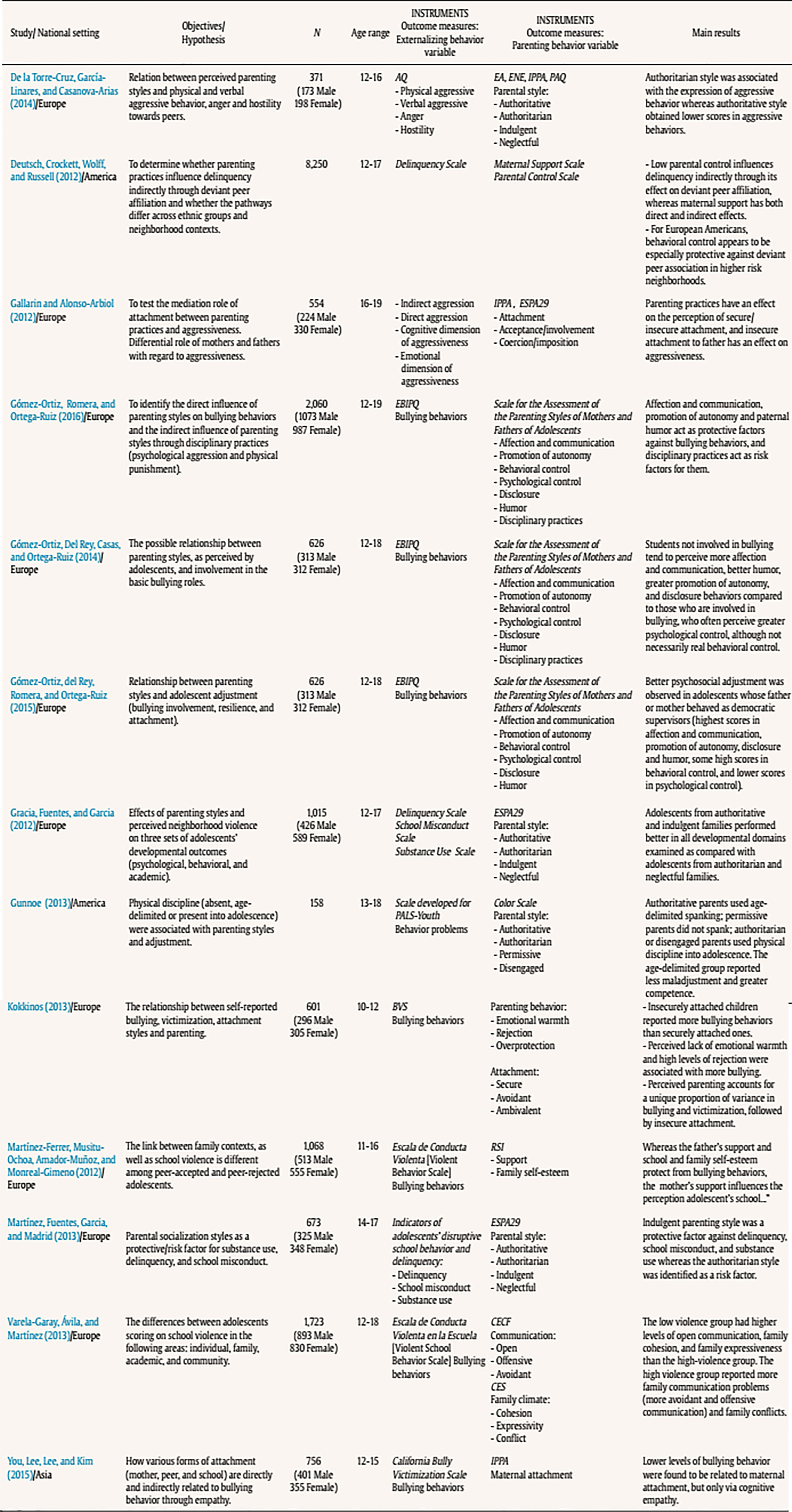



Influence Of Parental Styles And Other Psychosocial Variables On The Development Of Externalizing Behaviors In Adolescents A Sytematic Review Revista De Psicologia




Parenting Practices Questionnaire Constructs Authoritative Items 1 Download Table
The ParentChild Relationship Inventory (PCRI) assesses parents' attitudes toward parenting and toward their children The PCRI yields a quantified description of the parentchild relationship that complements other assessment procedures used in clinical evaluations of children and families Rather than replacing qualitative evaluation of parentchild interactions, the PCRI helpsSUMMARY The parentchild relationship consists of acombination of behaviors, feelings, and expectations thatare unique to a particular parent and a particular childWhereas Parenting is the process of promoting andsupporting the physical, emotional, social, and intellectualdevelopment of a child which is having different styles childrearingDimensions Questionnaire The quality of the parentchild relationship was assessed using the ParentChild Relationship Inventory The results of this study indicated that all parenting factors examined were significant predictors of the parentchild relationship quality Age of the child was not a predictor These findings have positive social




Basc 3 Parenting Relationship Questionnaire Basc 3 Prq Pearson Assessment




The Development Of A Parental Attachment Recognition Scale For Mothers Nurturing Preschool Children Tanaka Public Health Nursing Wiley Online Library
The ChildParent Relationship Scale (CPRS) is an instrument developed at University of Virginia's Curry School of Education and Human Development that assesses parents' views of their relationship with their child Created by Dr Robert Pianta, PhD, the instrument consists of 30 items There is also a short form with 15 items availableAssessing Parent Strengths and Family Connections Resources for screening and assessing parenting strengths and family connections Describes the process of assessing parenting capacity and highlights aspects of good practice drawn from research literature and guidance on the topic Provides information on Oregon's family assessment toolParent survey questions are survey questions asked to parents to understand the opinions, attitudes, perceptions, and points of view about topics that concern their children Such questions are used by schools, psychiatrists, and the government to collect information that can be beneficial for the issues that affect young minds




Pdf Attachment In Children With Autism Spectrum Disorder A Systematic Review Semantic Scholar




Factor Structure Of The Chinese Version Of The Parent Adult Child Relationship Questionnaire Semantic Scholar
ParentChild Relationship Inventory ParentChild Relationship Inventory Share Resource Type Instruments Author(s) Gerard Anthony B Publisher(s) Western Psychological Services Date Issued 1994 Alternative Title PCRI Source Los Angeles Western Psychological ServicesThis Questionnaire is designed to gather information about parentchild relationships and the factors that influence their development Since the research is at an early stage, many of the questions are open ended (similar to an interview format)The implications of the adult child and parent relationship for adult mental health has been relatively neglected in the adult psychopathology literatureThe Parent AdultChild Relationship Questionnaire (PACQ) was developed out of a need to identify key themes in this filial relationship, and construct a valid measure for its assessment, that is simple to administer and




Pdf The Parent Adult Child Relationship Questionnaire Pacq The Assessment Of The Relationship Of Adult Children To Their Parents




The Parent Adult Child Relationship Questionnaire Docsbay
Parent – Child Relationship Inventory (PCRI) This unique selfreport inventory tells you how parents view the task of parenting and how they feel about their children Designed for use with mothers or fathers of 3 to 15yearold children, the PCRI gives you a clear, quantified description of the parentchild relationshipTable 1Questionnaire measures of the ParentChild Relationship Measure Name Main Reference Measure Description and issues with validity/reliability Adult Adolescent Parenting Inventory (AAPI) (16) Bavolek, 1984 36 itemsparenting attitudes empathy toward the children's needs and parental expectations of the child's development (17)This study field tests and evaluates the Parenting Questionnaire, an instrument designed to assess parental attitudes and behavior, based on the childraising theories of Dreikurs and Dinkmeyer and the Adlerian model for parent study groups Dreikurs and Adler stress the purposive nature of children's behavior or misbehavior, and teach parents to develop responsibility in their children




Impact Of Parenting Practices On Parent Child Relationships In Children With Specific Learning Disability Karande S Kuril S J Postgrad Med




Summary Of Subscale Results In The Parent Child Relationship Questionnaire Download Table
Refer to cases in which a child is already living with one parent in the US, and has suffered abuse, abandonment, or neglect by the "other parent" or "noncustodial parent" who may currently reside in the US or abroad This manual will focus on requests for SIJS eligibility orders through child custody proceedings in family courtThe AQC is a 1item selfreport measure of children's attachment style that is based on Hazan &Questionnaire Parent/caregiver 400 ParentChild Relationship Inventory ParentChild Relationship Inventory NCTSN Measure Review Database wwwNCTSNorg 1 Materials Needed Paper and pencil ParentChild Relationship Inventory NCTSN Measure Review Database wwwNCTSNorg 4 norms, as there was no evidence for a systematic difference
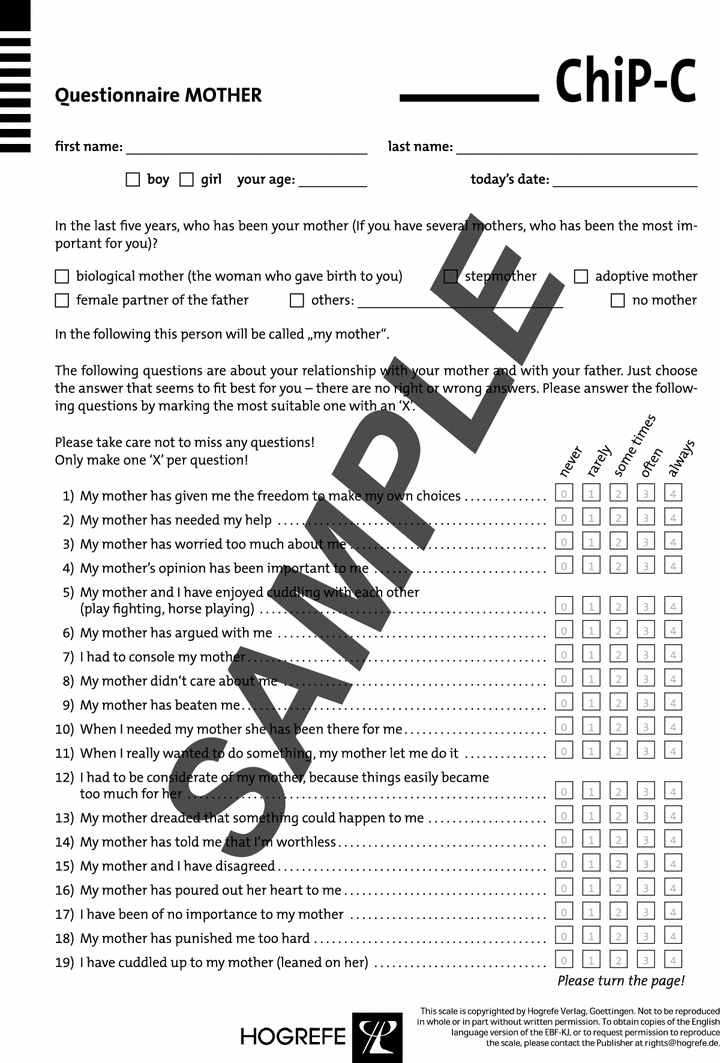



Assessing The Quality Of The Parent Child Relationship Validity And Reliability Of The Child Parent Relationship Test Chip C Springerlink



2
Milner, 1986) A 160item questionnaire designed to assess parents at risk for physically abusing their children Scores on the CAP range from 0 to 486 with a critical cutoff score of 166 (Milner, 1986) ParentChild Relationship Inventory Manual Los Angeles Western Psychological Services84% If your score is greater than 84, chances are you are connecting with yourParentChild Relationship Inventory (PCRI) Manual Los Angeles, WPS A PsychInfo literature search (6/05) for "ParentChild Relationship Inventory" or "PCRI" anywhere revealed the measure has been referenced in 27 peerreviewed journal articles, but three articles were clearly not about the measure



Children With Autism In Taiwan And The United States Parental Stress Parent Child Relationships And The Reliability Of A Child Development Inventory Page Unt Digital Library
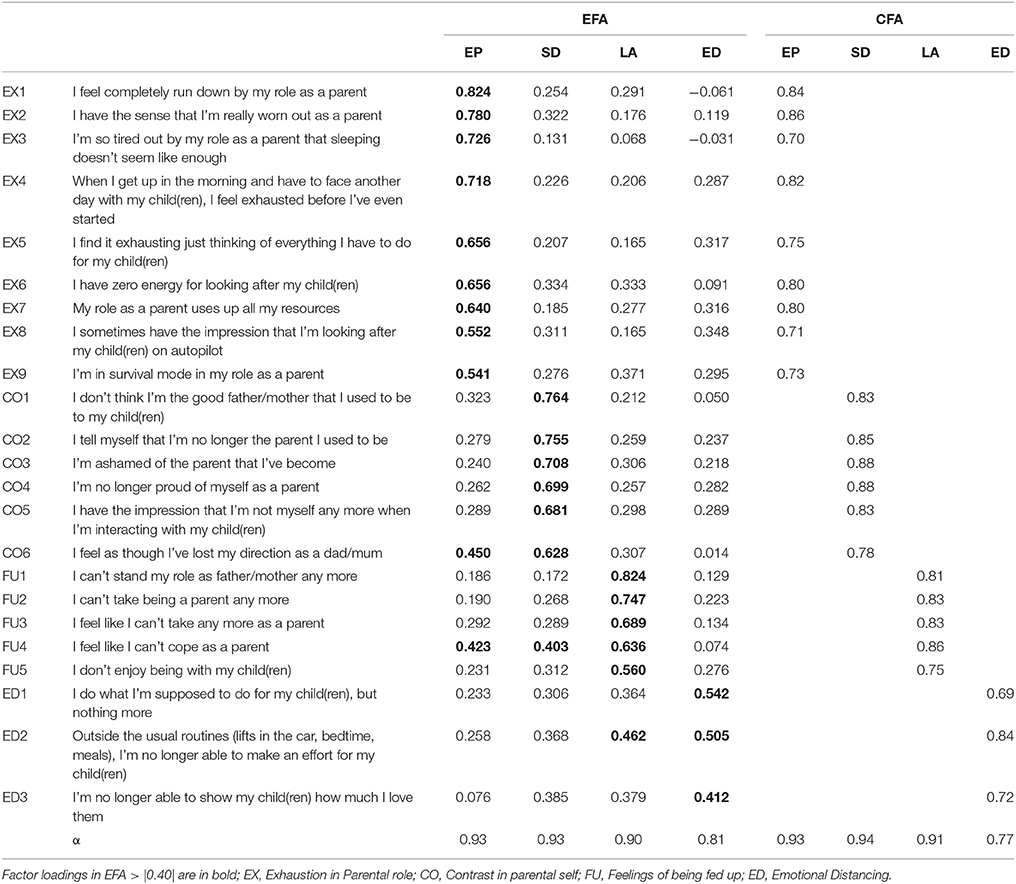



Frontiers A Step Forward In The Conceptualization And Measurement Of Parental Burnout The Parental Burnout Assessment Pba Psychology
ParentChild Relationships (Parenting) Revised Child Report of Parental Behavior Inventory Sibling Relationship Questionnaire (SRQ)25 (self report by 818 year olds) The Pediatric Inventory for Parents Journal of Pediatric Psychology, 26,The original version of the ParentChild Relationship Inventory for Children (PIC, in German FEBK) was given to a sample of 371 fourthgrade students of different elementary schools in Hamburg Factor and item analysis led to a 22item questionnaire with the dimensions Care, Control, Lack of Limitations, Confidence, and Conflict/RejectionTitle Parenting Relationship Questionnaire (PRQ) Author Kamphaus, RW &



2




Pdf Development Of The Parent Adult Relationship Questionnaire Parq Semantic Scholar
Surveys Sector Children and families Difficulty Moderate Cost Paid for Developer/Author ANTHONY B GERARD This selfreport questionnaire explores how parents view the parenting and their feelings towards their children Parents of children aged 315 can complete this 78 itemParentchild relationship qualities were measured using the FiveMinute Speech Sample, the Children's Report of Parent Behavior Inventory, and a child report questionnaire concerning perceived maternal warmth and hostility The role of the father's psychiatric status in resilient outcomes was also assessedEach question has a score from 1 – 5 To establish the mean, divide the sum by the number of questions in that section Conflicts 2 seem to be struggling with each other 12 easily becomes angry with me




The Quality Of Parent Child Relationships In Adolescence Is Associated With Poor Adult Psychosocial Adjustment Sciencedirect



2
Parenting Relationship Questionnaire results (adjusted means) 22 21 Parenting Relationship Questionnaire results Changes in Attachment Tscores 22 22 Parenting Relationship Questionnaire results Changes in Discipline PracticesStewart, 01) Further, previous studies suggest a strong association between the parentchild relationship and children's mental healthA PARENTCHILD RELATIONS QUESTIONNAIRE' ANNE ROE* Harvard University and MARVIN SIEGELMAN City College of New York The ParentChild Relations Questionnaire (PCR) was devised to obtain a measure of the characteristic behavior of parents towards their young children, as experienced by the child It has been used in studies of late




Pdf The Parent Adolescent Relationship Scale




Cont D Parenting Practices Questionnaire Constructs Authorit Arian Download Table
BASC3 Parenting Relationship Questionnaire BASC3 PRQ Randy W Kamphaus, PhD Cecil R Reynolds, PhD The BASC3 Parenting Relationship Questionnaire (BASC3 PRQ) captures parental perspective on the parentchild relationship Guidance on using this test in your telepractice Choose from our products



2




Child Ptsd Symptoms Cpss 5 Greenspace Mental Health Knowledge Base



Retrospective Perception Of Parent Child Relationships As A Function Of Achievement Level Page 30 Unt Digital Library




Preparing Parents For Parenthood Protocol For A Randomized Controlled Trial Of A Preventative Parenting Intervention For Expectant Parents Semantic Scholar




Vivienne S Individual Blog Religion And Parent Child Relationship Questionnaire




Pdf The Parent Child Interaction Questionnaire Pachiq
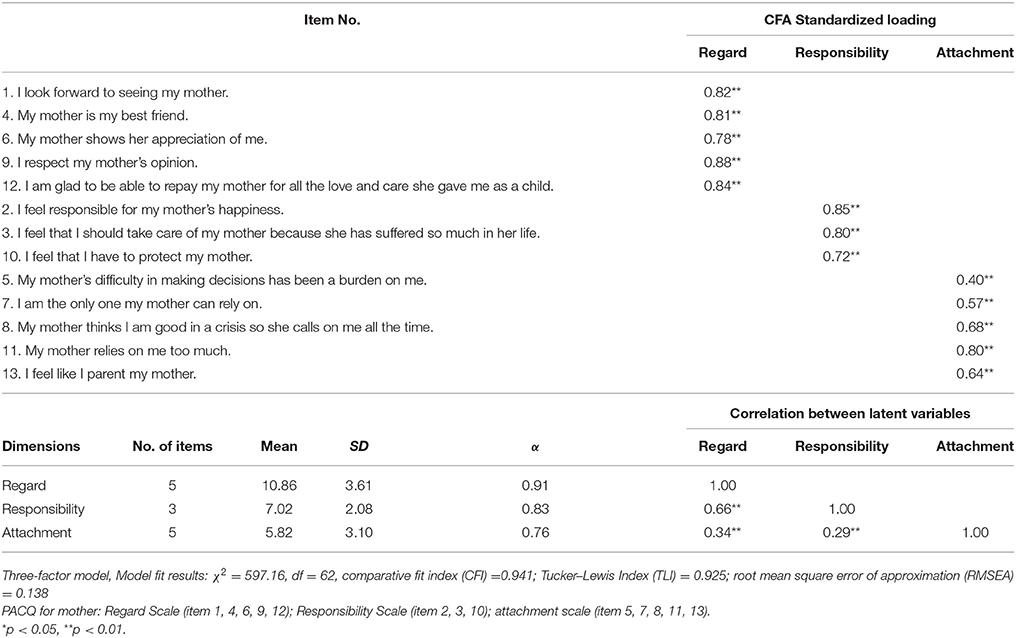



Frontiers Factor Structure Of The Chinese Version Of The Parent Adult Child Relationship Questionnaire Psychology




View Image



Child Parent Interactions In American And Turkish Families Examining Measurement Invariance Analysis Of Child Parent Relationship Scale




Pcri Parent Child Relationship Inventory



2



1
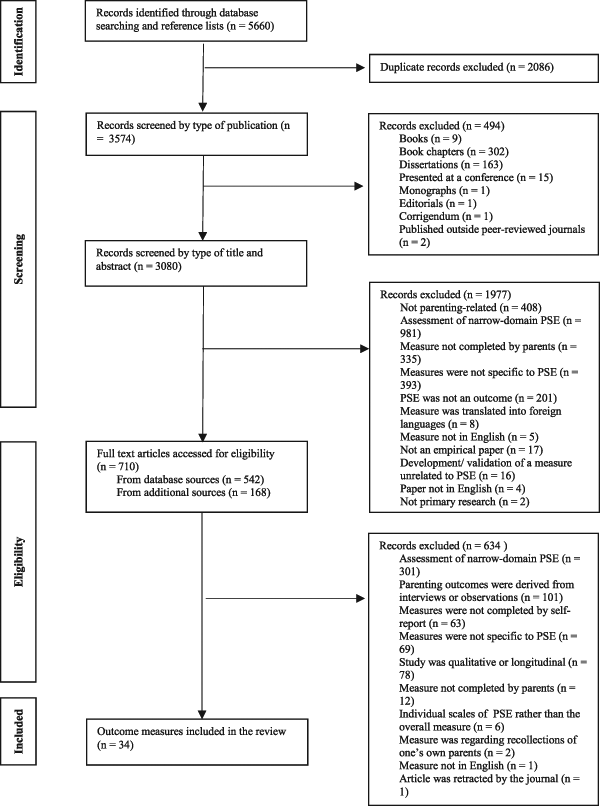



Self Report Measures Of Parental Self Efficacy A Systematic Review Of The Current Literature Springerlink




Pdf The Parent Adult Child Relationship Questionnaire Pacq The Assessment Of The Relationship Of Adult Children To Their Parents




Psychosocial Effects Of Parent Child Book Reading Interventions A Meta Analysis American Academy Of Pediatrics




The Contribution Of Parent And Family Variables To The Well Being Of Youth With Arthritis Semantic Scholar




Parent Adolescent Relationship Questionnaire Parq Par
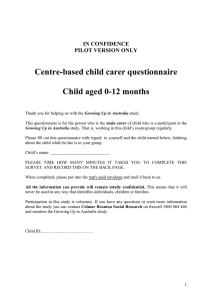



Parent Child Relationship Inventory Questionnaire




Pdf Translation And Validation Of The Chinese Version Of Parent Child Relationship Inventory Pcri C In Hong Kong




Development Of The Social Interactions Behavior Inventory Sibi For Children With High Functioning Autism Asperger S Syndrome Semantic Scholar




Parenting Assessment Questionnaire Assessing Parenting Help Center Updated




La Influencia De Los Estilos Parentales Y Otras Variables Psicosociales En El Desarrollo De Los Comportamientos Externalizantes En Adolescentes Revision Sistematica




Impact Of Parenting Practices On Parent Child Relationships In Children With Specific Learning Disability Karande S Kuril S J Postgrad Med
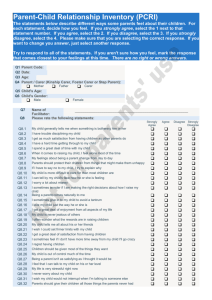



Parent Child Relationship Inventory Questionnaire



Questionnaire For Parent Child Relationships In Our Home




Pdf Increasing Family Safety And Decreasing Parental Stress And Child S Social Emotional Problems With Resolutions Approach A Single Case Experimental Design Study Protocol Semantic Scholar



Revision Sistematica De Medidas De Conducta Prosocial




Parenting Relationship Questionnaire Prq Pearson Assessment




Expanding Your Assessment Toolbox Bradley Jackson Ph D The Children S Hospital Aurora Co Robert Stadolnik Ed D Firepsych Inc Brandon School Medway Ppt Download




The Effectiveness Of Transactional Analysis On Parent Child Relationship In Mothers Of Children With Oppositional Defiant Disorder Avicenna Journal Of Neuro Psycho Physiology




Training Blueprint Technology Professional And Student Professional Functioning Data Gathering And Storage Monitoring Student Performance And Progress Ppt Download



1
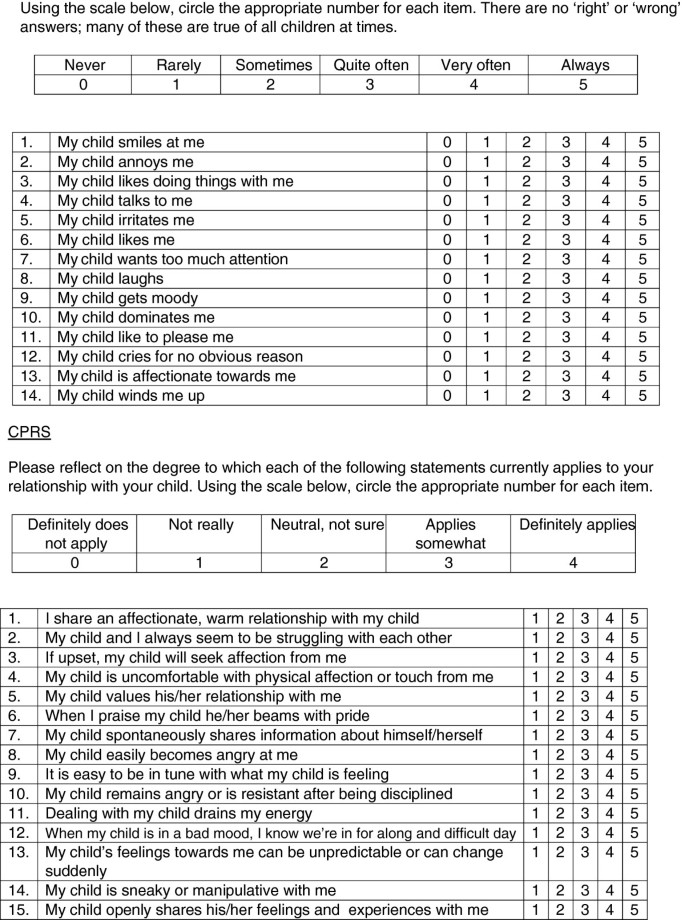



Validation Of The Mothers Object Relations Scales In 2 4 Year Old Children And Comparison With The Child Parent Relationship Scale Health And Quality Of Life Outcomes Full Text
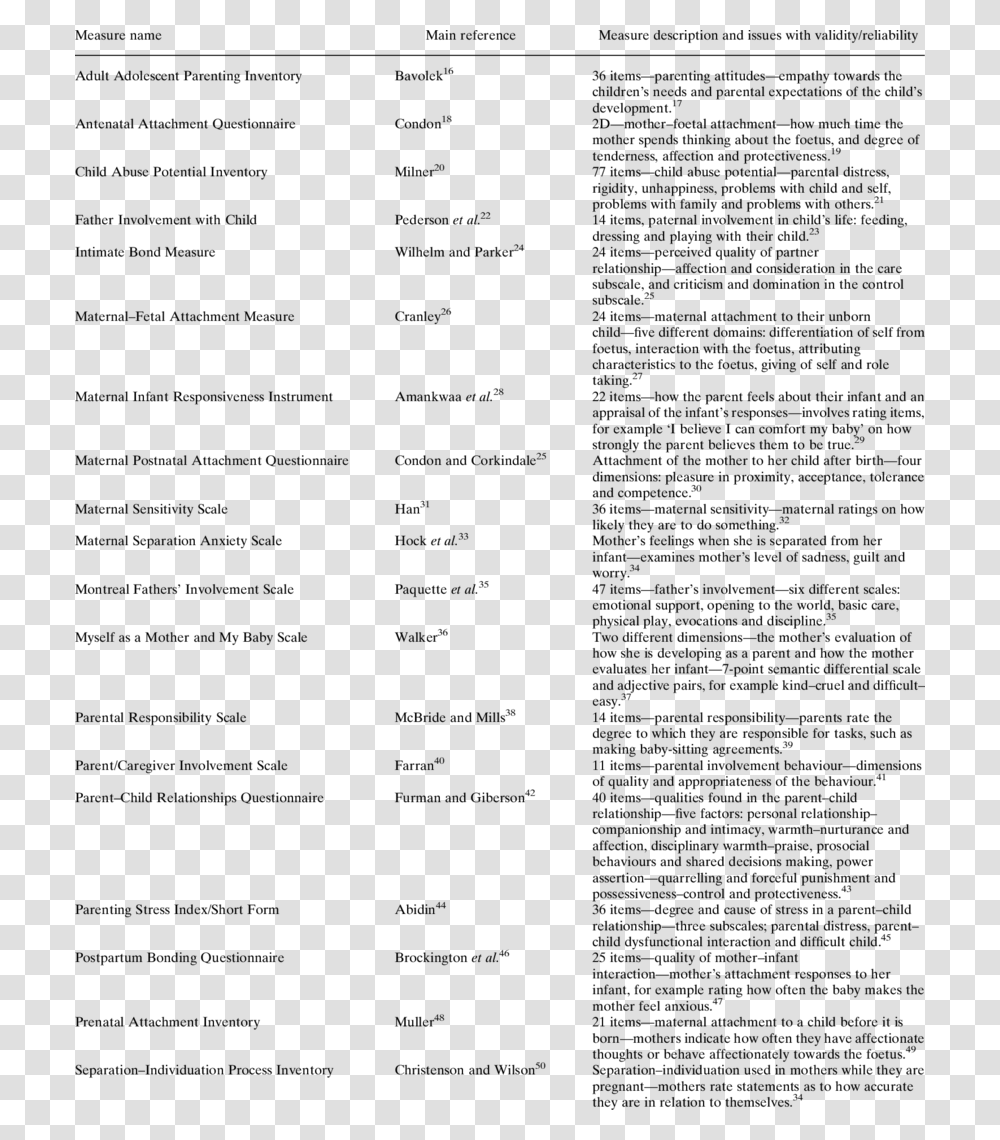



Parent And Child Parent Child Relationship Questionnaire Menu Poster Advertisement Transparent Png Pngset Com




Psi 4 Parenting Stress Index Fourth Edition



2




Questionnaire Measures Of The Parent Child Relationship Download Table
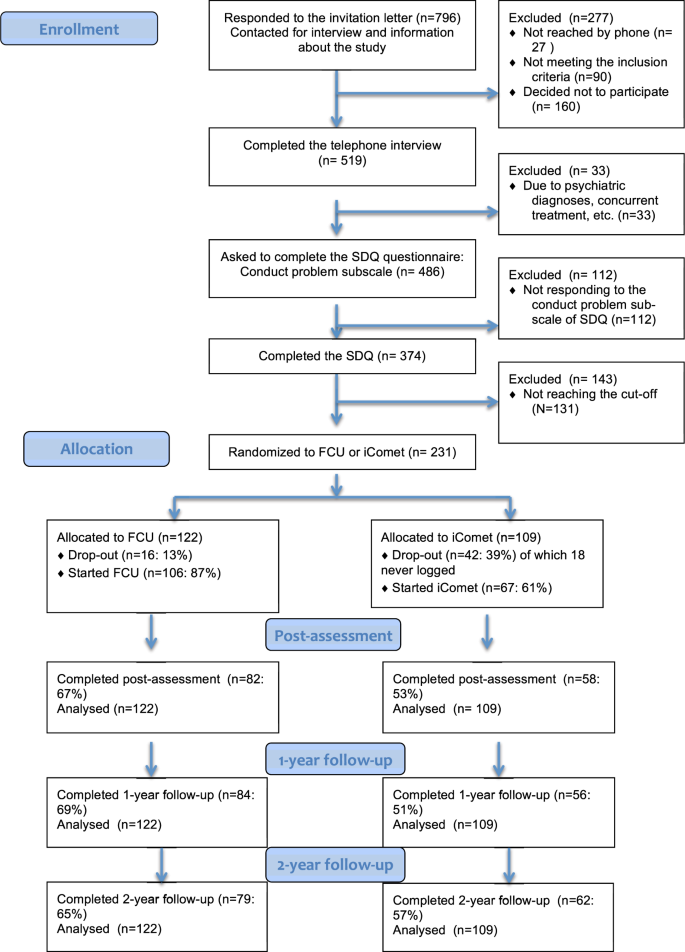



Randomized Effectiveness Trial Of The Family Check Up Versus Internet Delivered Parent Training Icomet For Families Of Children With Conduct Problems Scientific Reports




Parenting Relationship Questionnaire Prq Pearson Assessment




Summary Of Subscale Results In The Parent Child Relationship Download Table
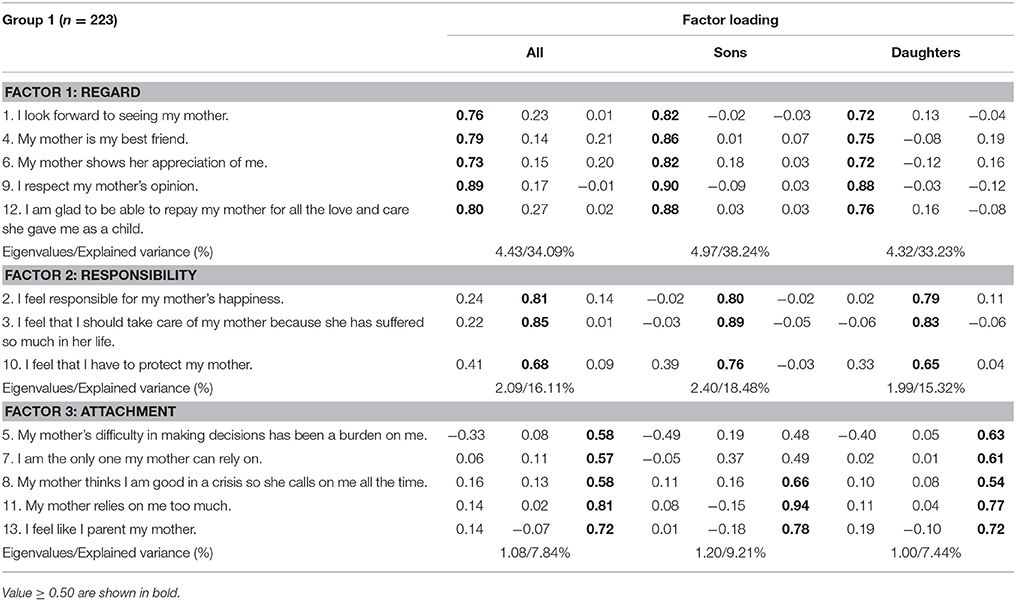



Frontiers Factor Structure Of The Chinese Version Of The Parent Adult Child Relationship Questionnaire Psychology



Family Interaction Relationship Types And Differences In Parent Child Interactions Document Gale Onefile Health And Medicine



Basc 3 Prq Basc 3 Parenting Relationship Questionnaire



Files Eric Ed Gov



1




Scielo Brasil Measuring Adolescents Perceptions Of Parenting Style During Childhood Psychometric Properties Of The Parenting Styles And Dimensions Questionnaire Measuring Adolescents Perceptions Of Parenting Style During Childhood Psychometric




Pdf Assessing The Quality Of The Parent Child Relationship Validity And Reliability Of The Child Parent Relationship Test Chip C




How Does Parental Cancer Affect Adolescent And Young Adult Offspring A Systematic Review Sciencedirect
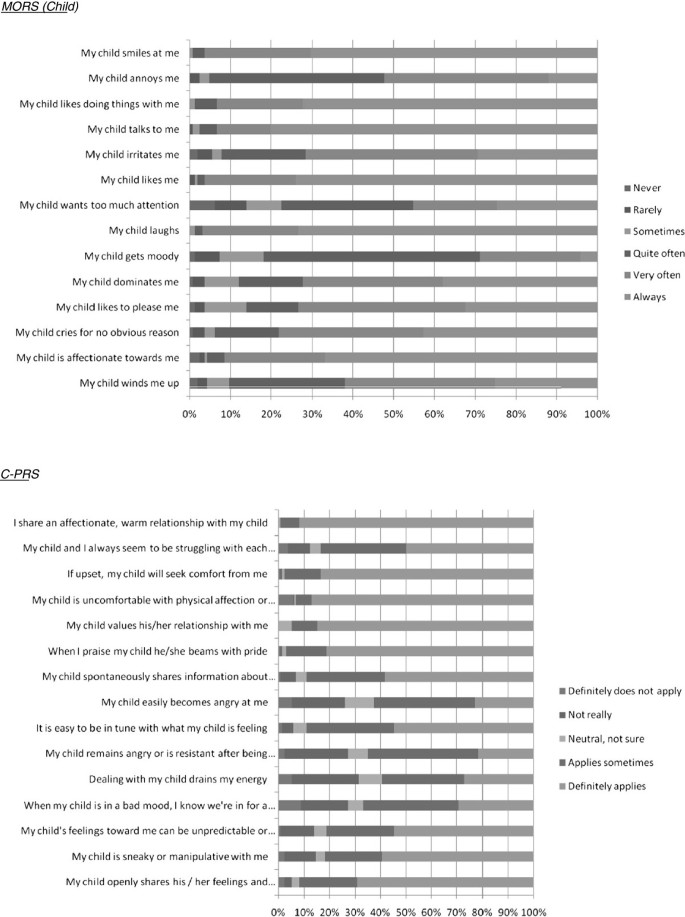



Validation Of The Mothers Object Relations Scales In 2 4 Year Old Children And Comparison With The Child Parent Relationship Scale Health And Quality Of Life Outcomes Full Text




Pcri Parent Child Relationship Inventory



2



2




The Parenting Stress Inventory Fourth Edition Short Form Psi 4 Sf Nc Child Treatment Program



Exploring The Relation Of Harsh Parental Discipline With Child Emotional And Behavioral Problems By Using Multiple Informants The Generation R Study




Development And Initial Validation Of The Parent Behavior Inventory
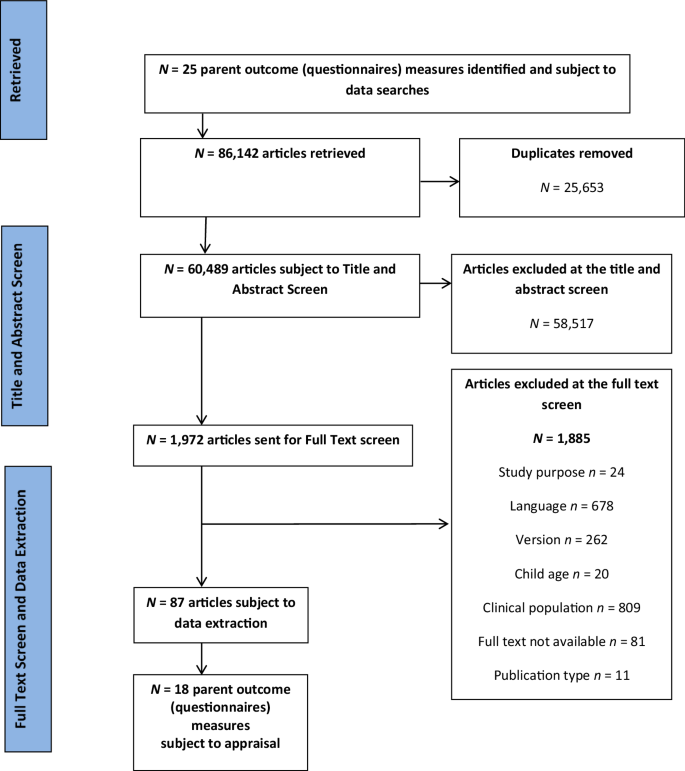



Psychometric Properties Of Parent Outcome Measures Used In Rcts Of Antenatal And Early Years Parent Programs A Systematic Review Springerlink
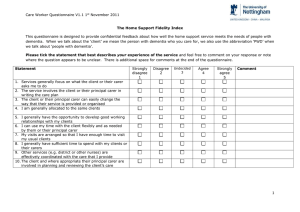



Parent Child Relationship Inventory Questionnaire
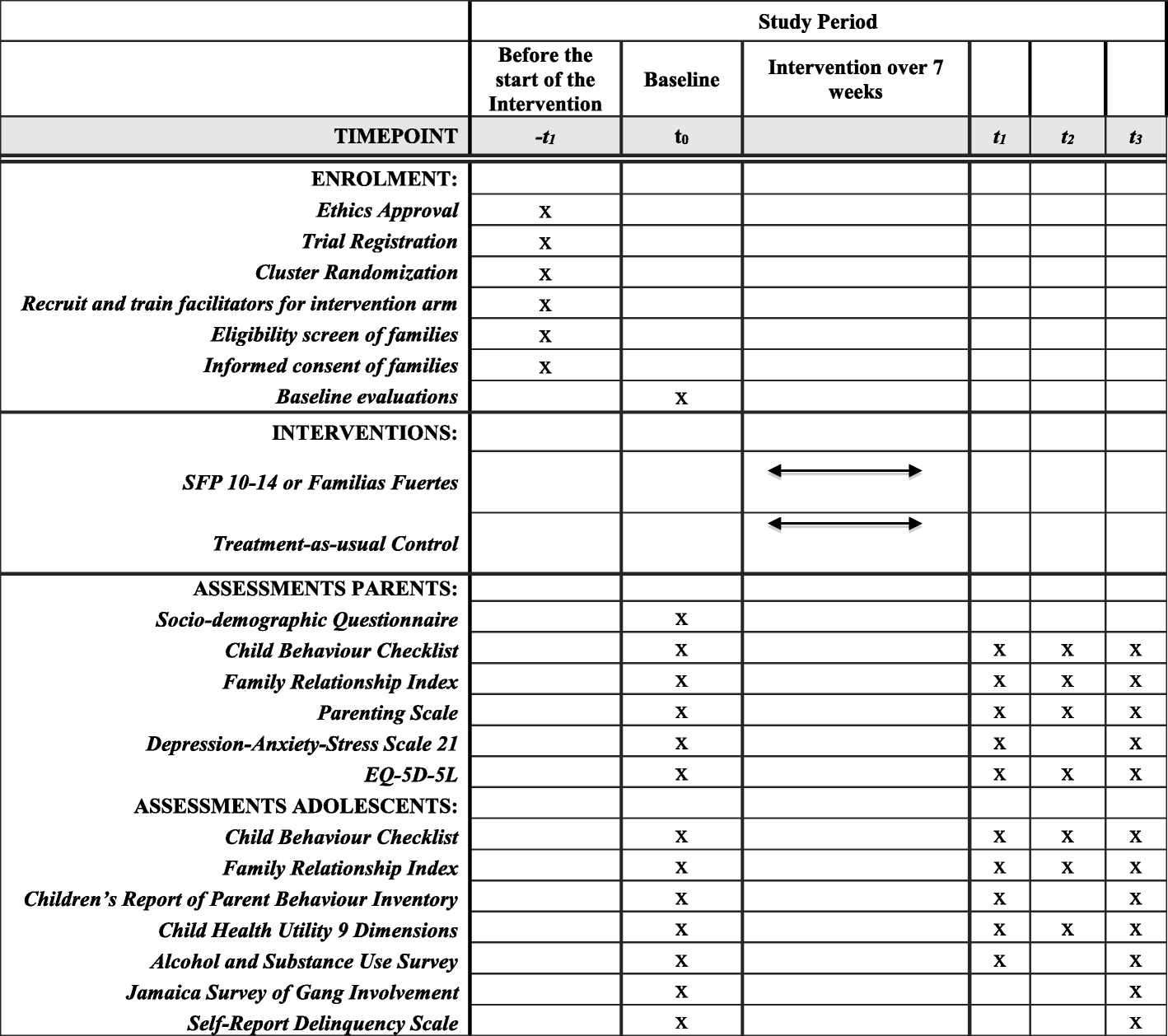



Protecting Adolescents In Low And Middle Income Countries From Interpersonal Violence Pro Youth Trial Study Protocol For A Cluster Randomized Controlled Trial Of The Strengthening Families Programme 10 14 Familias Fuertes In Panama




Psychological Well Being And Social Support For Parents With Intellectual Disabilities Risk Factors And Interventions Darbyshire 12 Journal Of Policy And Practice In Intellectual Disabilities Wiley Online Library




Investigating The Antecedents Of Perceived Social Support Parents Views Of And Behavior Toward Their Children
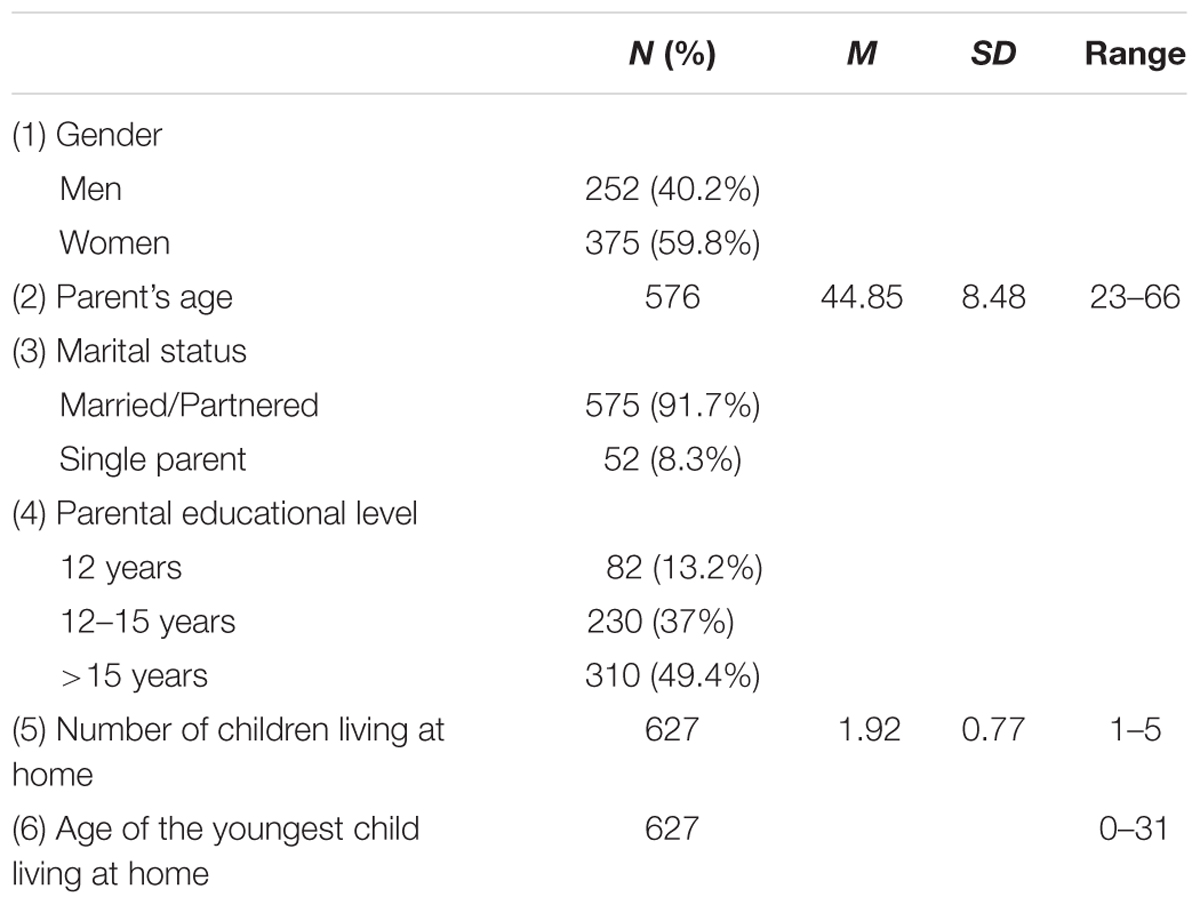



Frontiers Validity Of The Parental Burnout Inventory Among Dutch Employees Psychology
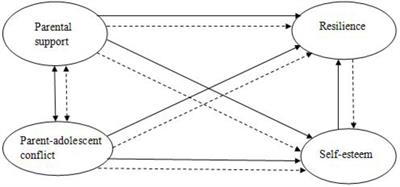



Frontiers Parent Child Relationships And Resilience Among Chinese Adolescents The Mediating Role Of Self Esteem Psychology



2




Parent Problem Checklist Ppc Research On Parents And Children




Pdf The Parent Adult Child Relationship Questionnaire Pacq The Assessment Of The Relationship Of Adult Children To Their Parents
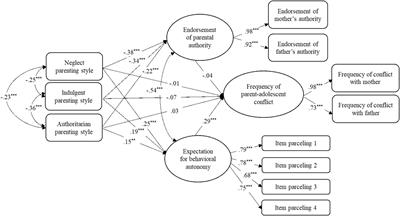



Frontiers Parenting Styles And Parent Adolescent Relationships The Mediating Roles Of Behavioral Autonomy And Parental Authority Psychology



1




Parent Child Relationship Inventory Pcri




Pdf Smartphone Self Monitoring By Young Adolescents And Parents To Assess And Improve Family Functioning Qualitative Feasibility Study Semantic Scholar



Full Article Is The Parent Child Relationship Inventory Pcri Valid For Family Measurement In Hebrew Speaking Parents A Report With Evidence On The Validity And Reliability Of The Hebrew Version Of The Pcri



Dergipark Org Tr
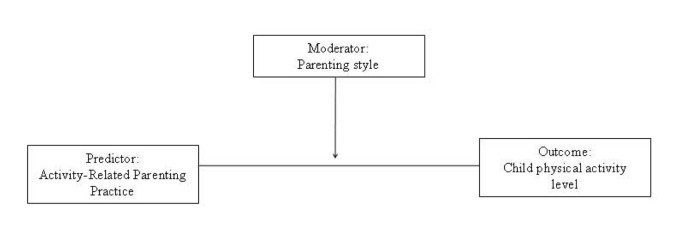



Parent Child Interactions And Objectively Measured Child Physical Activity A Cross Sectional Study International Journal Of Behavioral Nutrition And Physical Activity Full Text
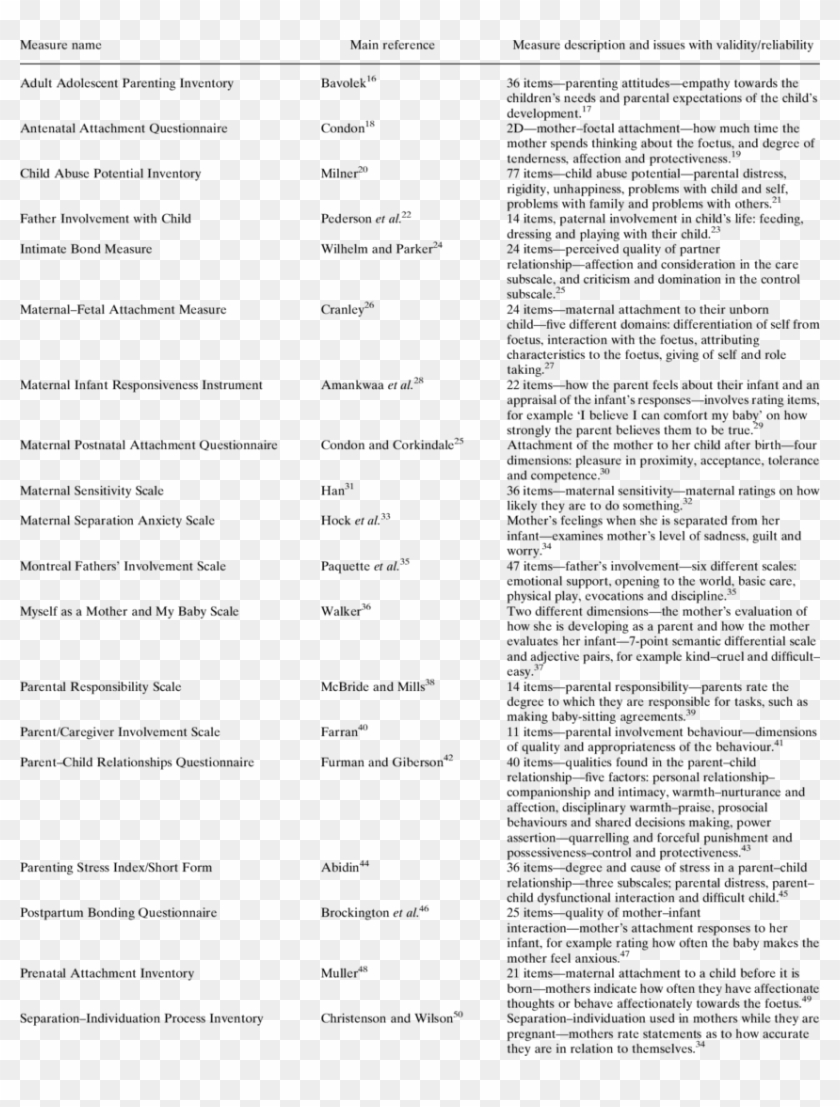



Questionnaire Measures Of The Parent Child Relationship Parent Child Relationship Questionnaire Clipart Pikpng




Questionnaire Measures Of The Parent Child Relationship Download Table




Transparent Parent And Child Png Parent Child Relationship Questionnaire Png Download Transparent Png Image Pngitem



Tandfonline Com



コメント
コメントを投稿